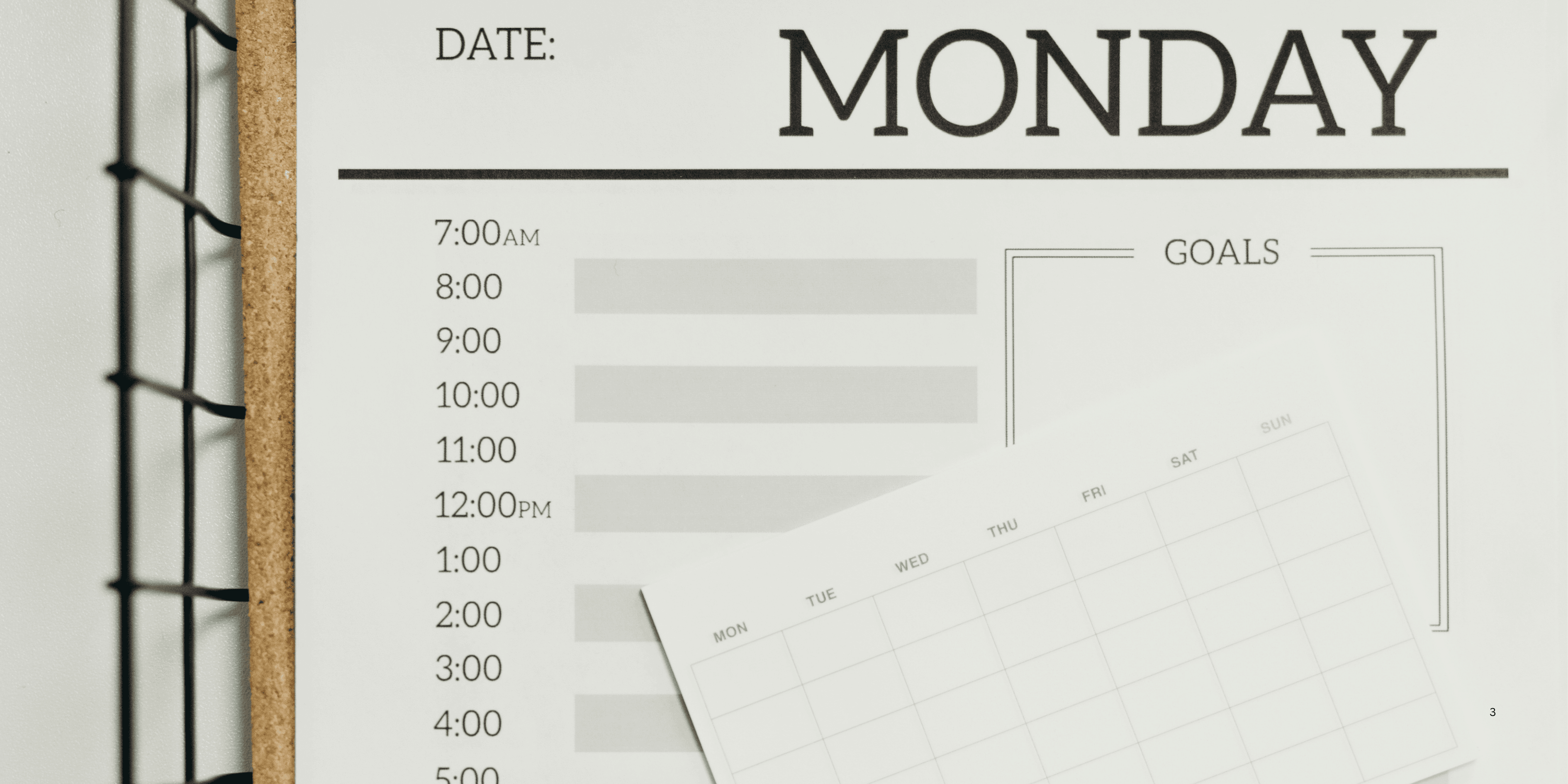
“
To thrive in today’s busy world, it’s essential to plan your day for better productivity. Thoughtful daily planning not only helps you accomplish tasks efficiently but also supports your physical and mental well-being. Creating structure in your routine can reduce stress, boost motivation, and increase your ability to focus. 1
1
”
Ancient philosopher Seneca believed structure brings freedom; he planned his hours by reflecting on daily actions, proving that clarity in schedule leads to personal growth and intentional living. 1
Starting your day the night before by writing down tomorrow’s tasks clears mental clutter, improves sleep quality, and sets a confident tone for the next morning’s activities and decisions. 2

Morning routines with small wins—like making your bed or stretching—stimulate dopamine, boosting motivation and giving your brain a momentum push that supports focus for the rest of the day.
Prioritizing your top three tasks in the morning ensures that critical responsibilities are tackled during peak mental energy hours, increasing productivity and decreasing decision fatigue significantly. 3
Time-blocking your schedule instead of multi-tasking helps reduce distraction, increases mental clarity, and offers a realistic picture of how long tasks actually take to complete. 4
Leaving 15-minute buffers between tasks gives your brain room to reset, reduces transition stress, and helps you adapt better to delays, last-minute tasks, or unexpected interruptions. 5
Reviewing your plan briefly every morning activates your prefrontal cortex, enhancing your brain’s ability to stay focused, organized, and aligned with short- and long-term goals. 6
Keeping your workspace clean and minimal is linked to higher efficiency; cluttered surroundings can increase cortisol levels, reducing your brain’s ability to concentrate and make sound decisions. 7
Scheduling breaks every 90 minutes, as supported by ultradian rhythm research, helps you avoid burnout and keeps your mind sharp by mimicking natural cycles of peak mental performance. 8

Setting deadlines for even small tasks creates urgency, keeping you on track and reducing the temptation to procrastinate—especially with less appealing but necessary responsibilities.
Writing down tasks instead of mentally tracking them reduces cognitive load and frees your working memory for deeper, more creative thinking, especially during complex decision-making times. 9
Including flexible time in your schedule allows for creative thinking, spontaneous learning, or solving unexpected problems without derailing your whole plan for the day. 10
Avoiding smartphone usage during your first hour awake boosts attention span, helps prevent overstimulation, and gives your brain a quieter, more mindful entry into your daily rhythm. 11
Using the “2-minute rule”—if something takes less than two minutes, do it now—keeps small tasks from accumulating and saves your to-do list from becoming mentally overwhelming. 12
Reflecting on your day each evening helps track progress, identify improvement areas, and train your brain to acknowledge both efforts and results, which enhances overall motivation. 13
Planning meals and hydration into your schedule stabilizes blood sugar and mood, providing consistent energy levels and avoiding the brain fog that often follows irregular eating habits. 14

Exercising early or mid-day increases oxygen flow to your brain, elevating cognitive performance and releasing mood-enhancing endorphins that help you stay alert and positive.
Gratitude journaling for five minutes during your day fosters emotional resilience, increases optimism, and reinforces a mindful, grounded approach to both your personal and professional life. 15
Reviewing weekly goals every Sunday creates a roadmap for your weekdays, reducing anxiety on Monday mornings and allowing smoother alignment between vision, priorities, and daily habits. 16
Neuroscientist Dr. Andrew Huberman emphasizes that consistent morning exposure to natural light regulates your body clock, sharpens focus, and enhances the brain’s ability to maintain healthy wake-sleep rhythms. 17


